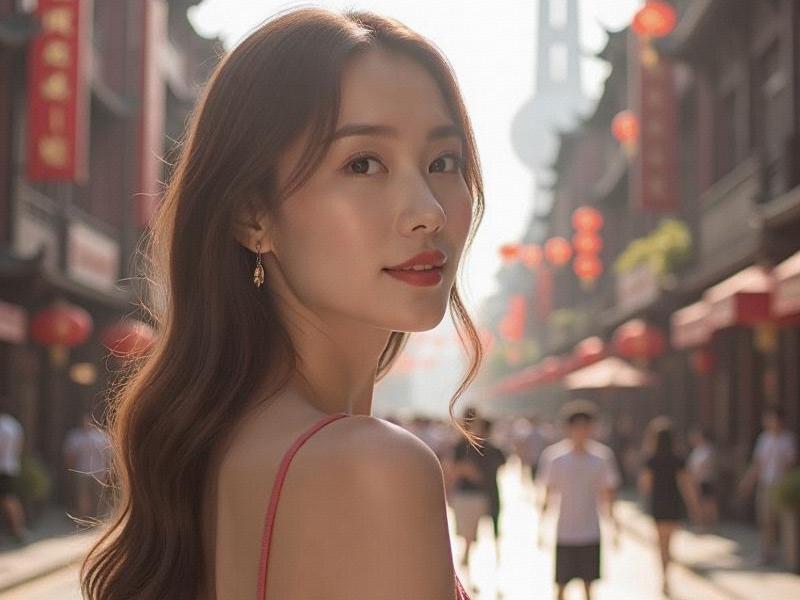The Velvet Rope Economy: Inside Shanghai's Exclusive Club Culture
⏱ 2025-06-28 00:11 🔖 上海龙凤419
📢0℃

As dusk settles over the Huangpu River, Shanghai's entertainment districts awaken to reveal a parallel economy where velvet ropes separate the elite from the ordinary. The city's premium clubs - with names like Cloud 9, Muse, and First - have evolved far beyond simple nightlife venues into complex social arenas where business, culture, and status intersect.
The Architecture of Exclusivity:
Modern Shanghai clubs feature meticulously designed spaces that serve multiple functions:
• Hybrid lounge/meeting rooms with soundproof glass (82% of premium venues)
• Private dining salons offering fusion cuisine (average ¥8,000 per person)
• High-tech karaoke suites with AI vocal enhancement
• Rooftop "sky clubs" with panoramic city views
• Underground speakeasies requiring digital keys
"These spaces are designed for what we call 'calculated revelry,'" explains hospitality architect Daniel Wu. "Every square meter serves both pleasure and purpose."
The Business Playground:
Shanghai's corporate culture has fundamentally reshaped club dynamics:
• 68% of surveyed executives prefer closing deals in clubs over boardrooms
• Average corporate group expenditure: ¥35,000-¥80,000 per evening
新上海龙凤419会所 • 91% of venture capital deals involve club-based entertainment
• 47% of multinationals maintain corporate club memberships
A typical executive evening progresses through carefully orchestrated phases:
18:30: Private dining with customized menus featuring premium ingredients
21:00: Reserved lounge areas for whiskey and deal-making
23:30: Transition to more social club environments
02:00: Ultra-VIP after-hours sessions in hidden chambers
Membership Matrix:
Access to this world comes with stringent requirements:
• Initiation fees ranging from ¥300,000 to ¥2,000,000
• Annual dues of ¥150,000-¥500,000
• 94% require three existing member referrals
• 82% conduct financial background checks
上海娱乐 • 73% maintain waiting lists (average 8-24 months)
Cultural Alchemy:
Shanghai's elite clubs showcase remarkable East-West synthesis:
• Mixologists creating molecular cocktails with baijiu and rare spirits
• DJ sets blending erhu with deep house beats
• Interior designs merging Ming Dynasty motifs with futuristic lighting
• Event programming that juxtaposes Chinese festivals with international themes
This cultural hybridity reflects Shanghai's identity as China's global interface. "We're not copying Western models - we're reinventing nightlife with Shanghainese characteristics," says club impresario Lisa Zhang.
Regulatory Tightrope:
The industry operates under increasing scrutiny:
• Blockchain-based ID verification systems
• Monthly anti-corruption inspections
上海品茶论坛 • Comprehensive biometric surveillance
• Strict operating hour controls (majority close by 4AM)
• Mandatory staff ethics training
These measures have professionalized the sector while maintaining social order, pushing clubs to emphasize their culinary and cultural offerings over pure nightlife.
Future Projections:
The next evolution promises:
• AI concierges with facial recognition
• Holographic performance spaces
• Sustainable club designs with carbon-neutral operations
• Virtual reality integration for hybrid events
• Cryptocurrency membership systems
As Shanghai solidifies its position as Asia's financial capital, its premium clubs evolve accordingly - becoming increasingly sophisticated crossroads where global business, local culture, and personal ambition converge beneath the city's neon glow.
"The Delta Dynamic: How Shanghai Powers the Yangtze River Megaregion""The Velvet Rope Revolution: How Shanghai's Nightlife is Redefining Urban Entertainment"The New Era of Shanghai's High-End Entertainment Scene: Where East Meets West in China's Nightlife Capital【早安上海】从"四大金刚"到智慧餐车:上海早餐工程3.0的时代答卷Shanghai and Its Surroundings: A Dynamic Tapestry of Urban and Rural CharmShanghai 2030: Where Futurism Meets Heritage in China's Most Dynamic MetropolisThe Digital Caravan: Shanghai's Blockchain Revolution on the New Silk Road【风尚解码】海派丽人图鉴:上海都市女性的十二时辰美学实践"Neon and Jade: Shanghai's Entertainment Venues Redefine Urban Leisure"Silicon Bund: How Shanghai Became China's Unexpected Tech Capital

